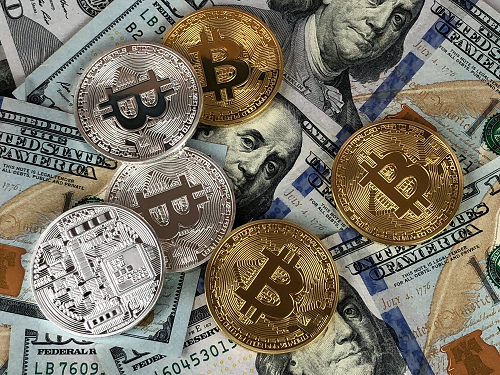A common word that is thrown around these days in light of Bitcoin’s meteoric rise in 2017 is ‘Bubble’. Bitcoin went on a tear in 2017, generating an unbelievable 1,500% year to date return. Understandably, people have become wary of the sky-high market cap of the flagship cryptocurrency, as can be seen during the panicked sell-off and subsequent recovery that happened recently. Much of this fear likely stems from the all too recent memory of the 2008 financial crisis. In fact, we see from a variety of sources that participation in the stock market has not recovered to pre-crisis levels, leading many Americans to be left out of the bull market rally. Bubble seems to be a term that is thrown out lightly these days, as investors are on edge thinking that the next recession is just around the corner. Market psychology aside, let’s examine whether Bitcoin actually fits the bill of a Bubble.
Comparison to Historical Bubbles
(Tulip Mania chart – At its peak, a single tulip fetched more than a skilled craftsman could earn in a year source)
Many people, particularly those who don’t understand Blockchain technology like to equate the Bitcoin price appreciation to the Tulip Mania craze of the Netherlands in the 1700s. At first glance, this seems to be an apt comparison. The same exponential price increase, speculation based on the FOMO effect, and lack of intrinsic value. If accurate, this would mean that Bitcoin is doomed to repeat the crash back to Earth that Dutch Tulip Traders suffered. However, it is clear that these two situations are not comparable, because the price increase of Bitcoin is underpinned by the revolutionary technology of Blockchain. Therefore, investors are not simply attempting to cash in on a temporary craze, but instead, betting that Bitcoin will lead a revolution in the way we think about currency. Furthermore, Bitcoin has already faced several scary corrections in its history and each time has rebounded strongly.

Another comparison that is fresh in peoples’ minds is the more recent US subprime mortgage crisis. As mentioned before, the fact that this occurred not long ago is inducing people to compare Bitcoin to the housing bubble. Equating these two situations would also be a mistake. In terms of scale, the housing market is on the scale of tens of trillions of dollars. The Bitcoin market cap is ‘merely’ on the order of hundreds of billions of dollars right now. In addition, most homeowners are levered through use of mortgages to fund their purchases of property. I don’t know too many people who have taken out loans to buy Bitcoin. Finally, the housing crisis put the nation’s entire financial system at risk, due to the vast amount of securitization of mortgages and the bets placed on them via derivatives such as credit-default swaps. Goldman Sachs put it best in a recent article (paywall, institutional account required) where they remarked on the scale of cryptocurrency and simply stated: “It is unlikely that a hypothetical (sharp) correction in the price of cryptocurrencies would represent a negative macroeconomic shock.”
To be fair, Bitcoin does exhibit some of the characteristics of a bubble: the rapid price increase that has defied any valuation logic, the fact that it is used more as a store of value than for its intended purpose, due to high transaction fees, and the irrational exuberance exhibited by its devotees. To really become a mature bubble though, Bitcoin would need to achieve mass adoption, which it certainly has not done yet, though it is on its way. It is impossible to know how many people own Bitcoin, but estimates are in the order of 25 million around the world, with many of those 25 million owning extremely negligible amounts. (source: Are you in the Bitcoin 1% ? A New Model of the Distribution of Bitcoin Wealth). To put that number in perspective, over 150 million people own stocks just in America. The fact that Bitcoin is a digital currency that requires a certain degree of tech savviness to obtain has served as a roadblock to mass adoption. This leads me to believe that if we are indeed in a bubble, we are still in the early stages, so there is significant upside, albeit with a high degree of risk.
In summary, I believe that although we may be in a Bitcoin bubble, the comparisons to historical bubbles are misguided, due to the unique circumstances surrounding this new, potentially revolutionary technology. In future articles, I will dive more deeply into the risks and potential of Bitcoin and the strategy for investing in Bitcoin and other cryptocurrencies.
Besides owning Bitcoin and cryptocurrencies directly, exchange traded securities that may give investors the desired exposure to this asset class include Bitcoin Investment Trust (OTCQX:GBTC), Winklevoss Bitcoin Trust (COIN), Bitcoin Services Inc (OTCPK:BTSC), and First Bitcoin Capital Corp (OTC:BITCF). In future articles, we will address each security in detail.